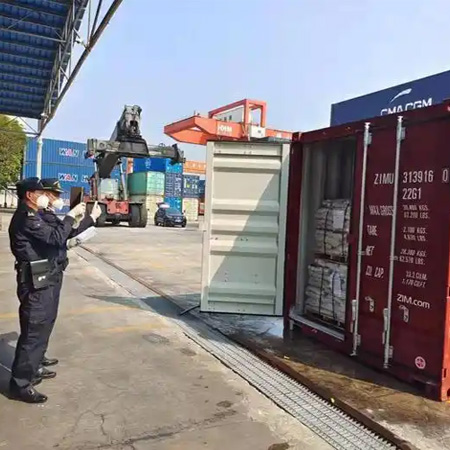In China’s export industry, exporting by buying orders is a common operation method. It is also the export method of most small and medium-sized exporters. Exporting by buying orders is closely related to the non-compliance of overseas capital repatriation. Cross-border e-commerce sellers do not declare customs in the name of their own company through exporting by buying orders. But complete the customs declaration operation of import and export trade by purchasing documents (such as invoices, packing lists, customs declaration letters, verification orders and special certificates, etc.) from other companies with export rights. But recently, China Cracks Down on “Buying Order” export practices. This action may cause rise of prices of steel and silicon metal and magnesium ingot.
The “Buying Order Export”
Factories or SOHOs that choose to export by buying orders generally have the following characteristics. This is because exporting by buying orders can help them reduce the cost of taxes and fees. For many years, steel and many related products exportation were in this way. Under this model, foreign importers do not need VAT invoices from domestic exporters, so domestic exporters have “goods without invoice”. This part of “un-issued invoices” can goes to some downstream users who need invoices. Downstream users can use low-priced VAT invoices to deduct input tax without actually purchasing the product. This industrial chain has caused some Chinese products such as steel, metals, minerals, agricultural products, and medicines selling to foreign countries at low prices. Meanwhile, the country’s tax revenue has suffered losses.

On March 28 this year, the five departments of China’s State Administration of Taxation, Ministry of Finance, Ministry of Commerce, General Administration of Customs, and State Administration for Market Regulation jointly issued the “Announcement on Matters Related to Optimizing Services and Standardizing Management of Exports of Goods Subject to Domestic Link Taxes”. The implementation of this policy clearly regulates illegal operations such as “exporting by buying orders”. This means the first time China Cracks Down on “Buying Order”. Industry insiders pointed out that this means the country’s crackdown on the problem of tax evasion and export. It has rises from sporadic actions in the past to the level of laws and regulations.
Implement of the New Policy
Specifically, this policy will focus on regulating the following behaviors:
1. Paying value-added tax and consumption tax. Article 1 of the announcement states that taxpayers who export taxable goods should be subject to value-added tax and consumption tax as domestic goods in accordance with current relevant regulations. 2. Standardize export procedures and crack down on tax evasion and low-price exports. Before taxpayers declare the export to the customs, they should complete the registration information at tax department. If the registration information confirmation is not complete at the tax department, or if it is a tax abnormality such as cancellation, abnormality, escape (loss of contact), the relevant taxing matters must be done before the customs procedures. 3. Strictly investigate false declarations and tax evasion.
News shows the purpose of this policy is to focus on the export of steel products by buying orders. Since China canceled the export tax rebate for all types of steel in 2021, exporters no longer need to apply for export tax. Since then, some Chinese exporters have evaded taxes by exporting by buying orders. Moreover, this method has been investigated and cracked down on by the tax department many times. However, the new policy will not only affect the export of steel. Products similar to or related to steel often meet the characteristics of “low tax rebate rate” or “0 tax rebate rate”. For example, silicon metal, magnesium metal, Silicon Carbide, etc. This will undoubtedly increase the cost of exporters. The new policy will be implemented on May 1, and the export prices of related products will also be affected by this policy.
